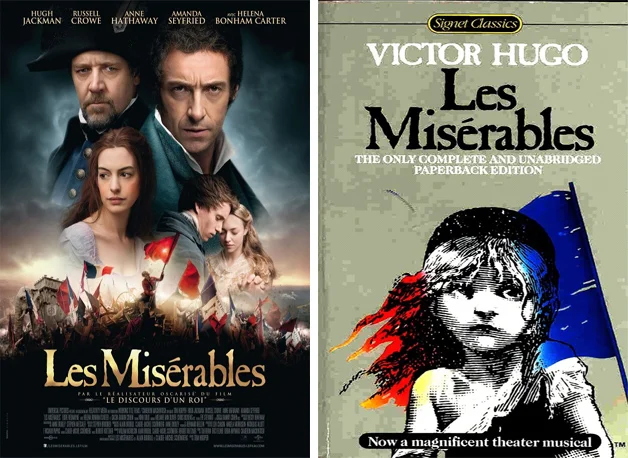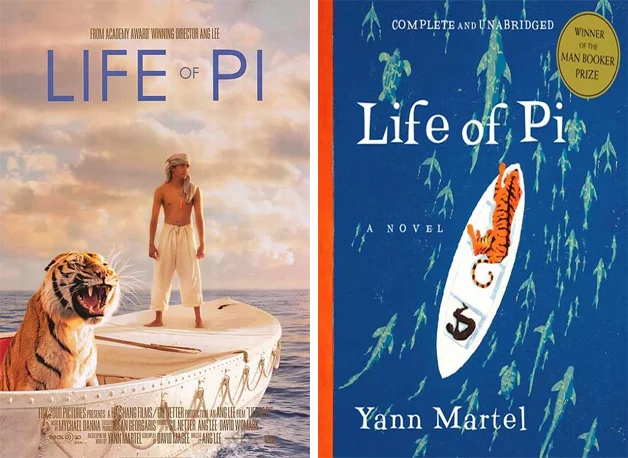Of the nine films nominated for Best Picture at this year's Oscars, five are book adaptations. These titles may have gained recognition in the world of film, but do they really do their literary counterparts justice? We take a look at what the directors, authors, and book fans have to say.
Argo
Inspired by true events during the Iranian Revolution, the story focuses on six American diplomat refugees who are rescued with the help of an elaborate science fiction movie hoax. When the case was first declassified, CIA agent Antonio Mendez wrote the book to make sure that the correct narrative was put on record. When watching the film Mendez said, though knew the ending, “it scared the bejeezus out of me." And though some typical Hollywood liberties were taken, Mendez said the movie still “[adhered] to the spirit of the story."
Les Misérables
Another revolution story, Les Misérables has been adapted into movies, musicals, and a play since its publication in 1862. The usual casting fanfare surrounded the most recent adaptation, overshadowing the fact that its script and plot are uncharacteristically true to the original story. Mark D. Roberts, writing on the Patheos blog, gives a thorough analysis of the novel, musical, and most recent movie and concludes that the "changes in the movie script reflect the book more accurately than the original musical. Moreover, many of these changes help the movie viewer understand the story more clearly." This strange hybrid of film, literature and theater seems to have come together in a way that would make Hugo proud.
Lincoln
While technically and aesthetically sound, Lincoln's plot seems to demonstrate that what works on the page doesn't necessarily work on the big screen. The movie left viewers like Victor Lana "thinking about the film that this could have been." While the book is an expansive historical text, the movie couldn't cover everything (although Tony Kushner's first draft did weigh in at 500 pages); instead, it focuses on the end of the Civil War and Lincoln's life. The film loosely interprets the text, a move that has resulted in ruthless fact-checking by historians. Despite this, Doris Dearns Goodwin, author of Team of Rivals, took a special liking to Daniel Day Lewis, saying he "uncannily [embodied] Lincoln."
Silver Linings Playbook
Though advertised as a quirky romantic comedy, Silver Linings Playbook manages to put romance second to story. "Russell has managed to do the near-impossible and create an adaptation that keeps the feel and essence of the original while becoming a fantastic film in its own right," praises Film vs. Book. At its core the book is about mental illness, and since the film follows suit, critics have embraced it. And though the movie often differs from the book, author Matthew Quick doesn't seem to mind. "The book is my story," he told Entertainment Weekly's Inside Movies blog. "[David O. Russell, director] told a slightly different tale inspired by my work, and I think he did a really good job with his adaptation."
Life of Pi
This visually stunning film also manages to stay true to its source, but whether movie audiences wanted that is another story. The majority of the book and film are devoted to Pi's survival on a boat shared with wild animals after the sinking of a tanker. Director Ang Lee stayed true to the book's ambiguous ending, which offered another interpretation of events where (spoiler alert!) the animals were merely representations of people who had been on the tanker. In the novel, it's one of those beautiful but frustrating literary moments where the reader is left to decide what they want to believe. Leaving this decision up to a movie audience didn't seem to go over as well, leaving many confused or underwhelmed. Author Yann Martel summed it up simply: "Words are better at conveying thoughts and emotions."
written by Rebecca Hoffman









 A Black Balloon Publication ©
A Black Balloon Publication ©